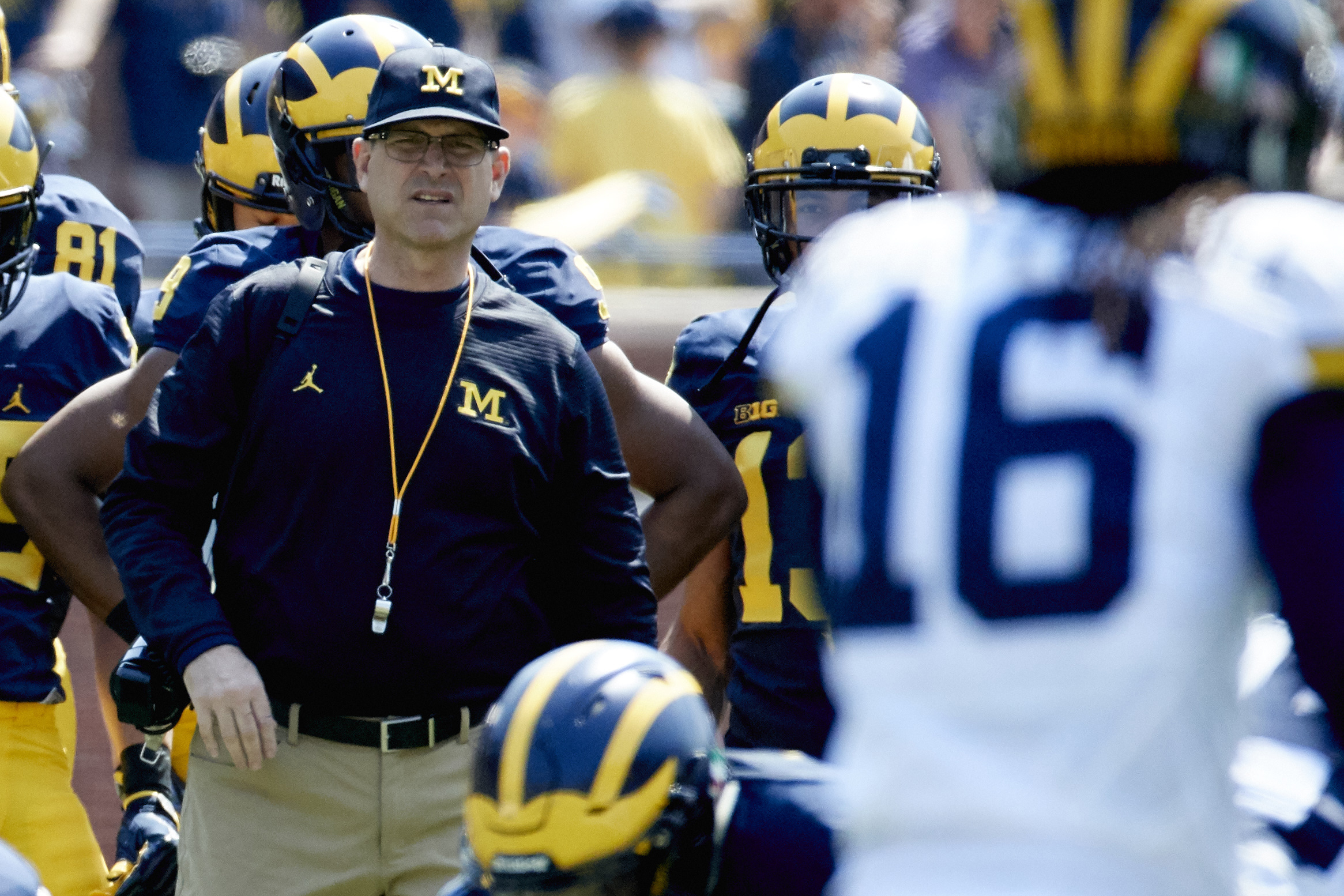Ad Disclosure

Let me preface this by saying that I like the work that Peter Burns does.
Yes, B1G fans. He’s an SEC Network host. Usually, he provides good perspective and understands the bigger picture on all things college football.
But with all due respect to Burns, this take wasn’t his best:
Going to be 48 degrees and might rain and Michigan canceled their Spring game? pic.twitter.com/XcTGGNEgcR
— Peter Burns (@PeterBurnsESPN) April 12, 2018
This is another bad take:
Michigan and Wisconsin cancel their spring games b/c of weather. Under the same conditions, Ohio State sells its spring game out. https://t.co/0IvXeFmPK7
— Albert Breer (@AlbertBreer) April 12, 2018
Yes, Michigan canceled its spring game. So did Northwestern, Wisconsin and Iowa State. No, they don’t have crystal balls that can perfectly predict whether the expected thunderstorms will be as bad as the current forecast says they’ll be.
If the weather somehow winds up being 50 and sunny across B1G country on Friday night and Saturday afternoon, they’ll all be easy targets.
You know what, though? They shouldn’t be.
Pre-emptively canceling a spring game might be mocked, but if you think about it, it’s surprising it doesn’t happen more often. Spring games have very little upside for teams. In fact, let’s try and list all the benefits that a typical spring game brings:
- Helps evaluate quarterback battles
- Allows early enrollees chance to get first reps in front of crowd
- Good weekend to host recruits
- Gives fans chance to see team without shelling out big bucks
Those are all good things, but coaches won’t lose any sleep if they don’t get one of those three benefits. If the conditions are conducive and you can get those benefits, great. That’s why spring games turned into televised events the last decade. And sure, it’s a chance to make a tiny bit more money if 20,000 people show up and pay $5 a pop.
But let’s not pretend like the positives outweigh the negatives. There’s a significant increase in the likelihood that potential negatives involved actually occur as a result of playing a spring game with the threat of inclement weather (which there is):
- Injuries
- Weak attendance
Those two things are huge. How awful would it look if a kid tore an ACL on a slick field in wet conditions? Everybody and their mother would criticize the coach for playing in a spring game. Obviously that can happen in a given practice or in a game, but that isn’t a televised exhibition scrimmage.
Coaches hold their breath during spring games when it’s sunny and 75 just because of the threat of injuries. Can you imagine how nervous they’d be if they played through a thunderstorm? Of course they want no part of that.
And of course they want no part of hosting recruits in front of a mostly-empty stadium in front of fans who look wet, cold and miserable (yes, weather is a big factor in spring game attendance). What kind of a lasting image is that? If that’s supposed to be the highlight of their visit, it isn’t going to be much of a highlight.
It makes perfect sense that coaches across the Midwest called off their spring games in the middle of the week. Some of them were probably relieved that they didn’t have to make a late decision and either send fans home at the last minute or send players out for a scrimmage that doesn’t really mean anything.
What does mean something is getting to the summer healthy and giving recruits the best possible image of the in-stadium experience. By the start of fall camp, nobody will remember or really care that a handful of schools canceled their spring games. Surely playing a spring game won’t win a team more games.
Is it a bummer? Of course.
It would’ve been great to see Shea Patterson sling it for Michigan. Watching a preseason top-10 team like Wisconsin would’ve been nice, too. Even seeing Northwestern play with a bunch of images of that incredible new facility would’ve been cool.
But life will go on without a few spring games, whether the skeptics understand the cancelations or not.
Connor O'Gara is the senior national columnist for Saturday Tradition. He's a member of the Football Writers Association of America. After spending his entire life living in B1G country, he moved to the South in 2015.